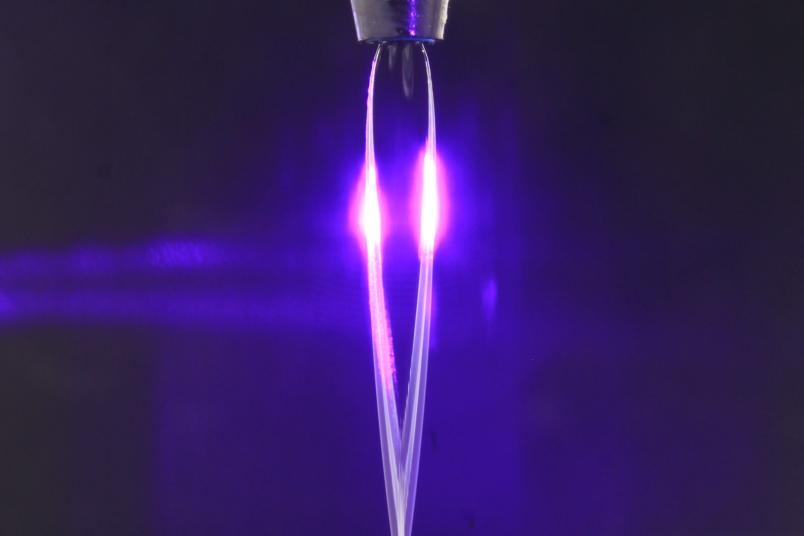
Chemistry Laser controls ultra-fast liquid switch
Researchers unveil a brand new concept for switches with unprecedented speed.
Researchers at Ruhr University Bochum, Germany, have developed an ultra-fast water-based switch. A short but powerful laser pulse converts the water into a conductive state within less than a trillionth of a second (10-12 seconds), during which time it behaves almost like a metal. This makes it faster than the fastest known switching speed of a semiconductor to date. Adrian Buchmann, Dr. Claudius Hoberg and Dr. Fabio Novelli from the Ruhr Explores Solvation Cluster of Excellence RESOLV published their findings in the journal APL Photonics on 6 December 2022.
Laser makes water behave like a high-speed switch
All the operations of computers and smartphones are based on circuits. The speed at which a component can switch between the states zero and one ultimately determines how fast a computer can run. Modern computers use semiconductors that make electrical switching possible. “They are inherently limited in their speed,” explains Claudius Hoberg.
Together with his colleagues, he has unveiled a possible novel approach to water-based circuits. The water in which the researchers had dissolved iodide ions – salt water, in other words – is fanned out by a custom-made nozzle so that it streams as a flattened jet with a thickness of only a few micrometres. “Think of it like squeezing a gardening hose to make the jet of water broad and flat, only on a much smaller scale,” explains Hoberg.
A short yet powerful laser pulse is then directed through this water jet. The laser frees electrons from the salt dissolved in the water so that the water becomes suddenly conductive at terahertz frequencies, exhibiting properties similar to those of a metal. The short duration of the laser pulse of 10-14 seconds turns the water into an ultra-fast switch. “A speed of 10-12 seconds was observed in the terahertz range,” says Claudius Hoberg. A second laser probes the state of the water.